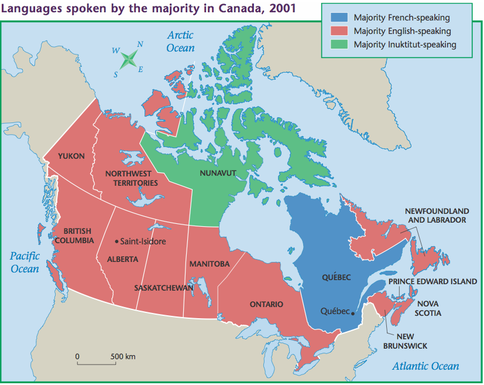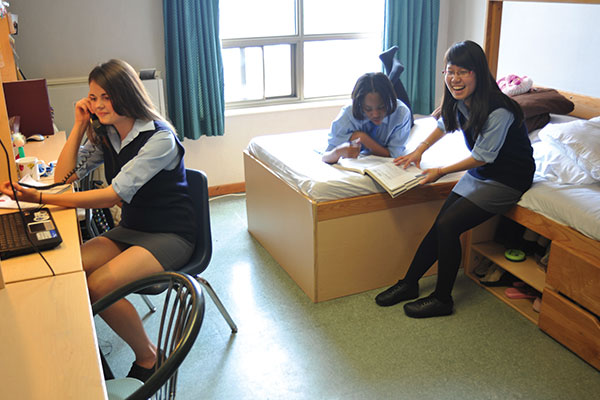
Ten essential facts about studying in Canada
Have you thought about relocating to study in Canada? There’s excellent reason to, with over 100 high-quality universities spread out across the nation. It provides international students with a secure and encouraging academic environment from coast to coast as well as the chance to find employment following graduation.
Ten things you should know about studying in Canada are covered in this guide:
1. There is a great deal of diversity in Canada:
Canada is one of the world’s most multicultural countries with over one in five of its citizens are foreign-born. Based on the latest data, about 50% of individuals who were born outside of Canada are Asian. Europe makes up about 28% of the population, while Africa makes up 8.5%. Furthermore, 37.5% of Canadian children were either born overseas or have a parent who was born overseas.
2. There are two official languages in the nation:
English and French are the two official languages of Canada. The term francophone refers to people who speak French, and the term Anglophone refers to people who speak English. The bulk of those who speak French as their primary language in Canada—about 23% of the population—dwell in the province of Quebec. Moreover, Canada is home to more than 100 French-speaking colleges and universities.

It’s crucial to remember that all federal government organizations speak two languages. This implies that you can file your student visa paperwork in either French or English. Additionally, you’ll observe that the border crossing officer will say “bonjour, hello” (or vice versa) as you enter Canada. You will also note that many government employees also speak another language (more than 140 of them), as many are 1st generation Canadian fluent in more than one language.
3. There may be more affordable tuition:
Tuition for international students is typically less expensive in Canada than it is in the US and the UK. They are still rather expensive, though. The cost of tuition for an undergraduate degree at a university falls between $18,000 to $45,000 per year. While there are instances when college costs are lower, annual tuition might still exceed $18,000 CAD. University costs can be as high as $60,000 per tuition for Ivy League schools like UofToronto or UBC (University of British Columbia)
4. Scholarships are offered:
The good news is that Canada offers some scholarships to students from abroad. Once a student is accepted into a university based on their academic achievement, many scholarships, known as entrance scholarships, are provided to them. These scholarships are based are based on your high school GPA and are automatic, you need not apply for them.
5. Institutions offer a lot of assistance:
Canadian universities and colleges want their foreign students to be successful. The international student office at your university will offer services, including assistance with health insurance and visas, programs for upskilling, and guidance on adjusting to life in Canada. Support services for the entire school will also be available. Among them are:
- Programs for mentoring
- Services for mental health
- Academic modifications
- Workshops in Languages
- Assistance with housing
- Assistance for employment
- Prayers rooms on campus for all religions
Learn how to contact international student communities for assistance.
6. Residence halls on campus serve as a social nexus
In Canada, most universities provide on-campus accommodation. First-year students may occasionally be assigned to student housing.
In addition to typically including a meal plan, residences might be shared houses, single studio flats, or dorm rooms. Living on campus allows you to socialize with people from all over the world, and for many students, residence halls take on the role of a true community center.
You can, however, still live off campus in student housing. There are alternatives for student accommodation in most cities that aren’t connected to any specific colleges but nevertheless provide a comparable experience and the same services, such as cafeterias, study places, and entertainment areas

Are you curious about the cost of living in Canada? The cost of living in several large cities is examined in our student guide, including Toronto, Halifax, and Vancouver.
7. It is possible that you can work as you learn:
You are not permitted to work in Canada as an international student unless you are enrolled full-time at a designated learning institution (DLI). If so, you will be able to work off campus 20 hours a week and full-time during the designated breaks in the semester. Your job conditions will be printed on your study permit.
You will need to apply for a Social Insurance Number (SIN) before you start working. It just takes a few minutes to complete this online and it is free.
Where you live will determine how much money you make. In Canada, the minimum wage differs from province to territory. For instance, the minimum wage in British Columbia is $17.40 per hour, but it is $17.20 in Ontario.
See these ten part-time positions in Canada that are available to foreign students!
8. Although there are less expensive solutions, travel can be costly:
It may surprise you to learn that Canada is the world’s second-largest nation. It is 9.98 million square kilometers in size! This is one of the reasons that travel within Canada is so pricey. Flying can be especially expensive because of high airport charges and a lack of competition in the aviation sector. For instance, the cost of a one-hour flight from Toronto to Montreal might reach $300.
There are, however, less expensive ways to experience Canada if you wish to travel and the government has declared it safe for you to do so this year. For instance, students and those under 25 who travel by train might receive discounts from VIA Rail. As an alternative, Megabus is a low-cost bus company with routes across the United States and Canada.
9. Canada grants permits for post-study:
After you graduate, do you want to remain and live in Canada? You’re not by yourself. Out of all foreign students who arrived in Canada after 2000, three out of ten are now permanent residents.
Following graduation, students can work in Canada in a number different ways. For instance, if you qualify, the post-graduation work permit can let you remain in Canada for a maximum of three years after finishing your studies.
10. Global perspectives are valued by Canadians:
In Canada, having overseas experience is seen as a huge plus. Almost all of the nation’s universities provide their students with the option to study or work overseas. Even better, eighty percent of employers claim that hiring individuals with foreign and cross-cultural expertise improves their company.

Go Study Canada employees have more than 40 years of combined experience in providing education consulting, visa application, and overseas relocation services for Thai students wishing to study in Canada.
Our mode of operation focuses on matching the student with the best school and program based on their specific needs. We assist the student with every step of the process, from the initial consultation to selecting and applying to a Canadian school, applying for a study permit, all pre-departure preparations including orientation, travel arrangements, and post-arrival support. We make it easy for the students so they can concentrate on their studies and ensure success while in Canada.

